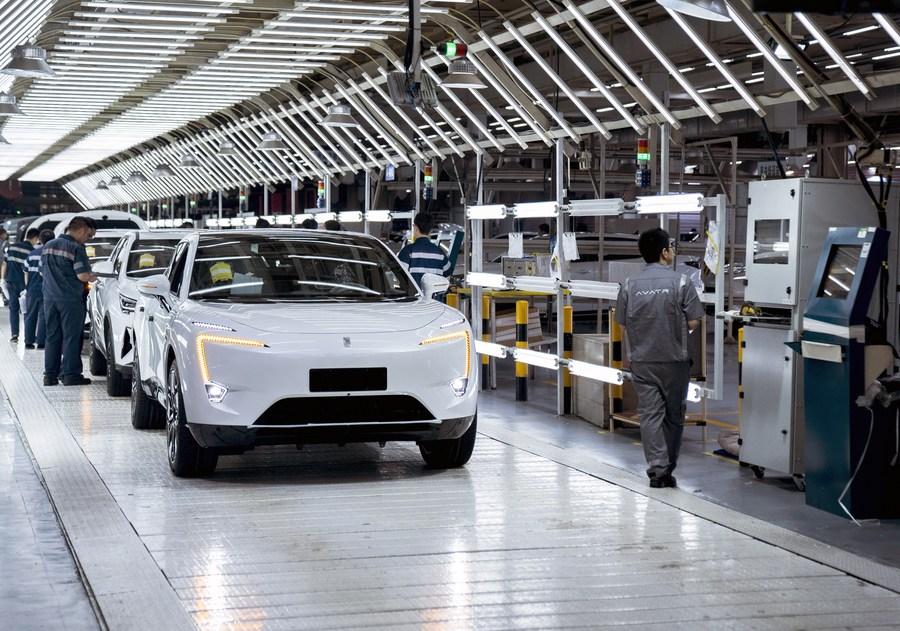

Workers are busy at a production line of the new energy vehicle AVATR at a workshop of Chang'an Auto in Jiangbei District, southwest
Amid global economic uncertainties, economists underscored the strong resilience and great potential of China's economy, anticipating its continued prominence as a pivotal contributor to global economic growth this year.
Despite challenges stemming from weakening external demand and mounting uncertainties, they expressed optimism regarding China's capacity to achieve its annual GDP growth target of around 5 percent, citing proactive fiscal and monetary measures aimed at stimulating domestic demand as key factors supporting the outlook.
Justin Yifu Lin, dean of Peking University's Institute of New Structural Economics, said the annual growth target is achievable if the government steps up both fiscal and monetary policies to stimulate consumption and investment.
"China still enjoys great potential and ample development space," Lin told a macroeconomic forum held on Wednesday by Peking University's National School of Development.
Dismissing speculation that China's economy has reached its peak, he said China enjoys favorable advantages and conditions to maintain sustained growth, including its ultra-large domestic market, a complete industrial system, huge investment in industrial upgrading and its booming digital economy.
"China's role in the global economy is substantial, as it accounts for around 18 percent of the world economy," Lin said.
"The nation's anticipated growth rate of around 5 percent is poised to contribute one percentage point to global economic expansion, contributing approximately 30 percent of global economic growth, solidifying China's position as the primary driver of global economic advancement."
Luo Zhiheng, chief economist at Yuekai Securities, also voiced strong optimism about China's economic prospects, saying the country still enjoys ample room and sufficient policy tools to bolster the economy.
He said this year's primary support for the economy could come from forceful infrastructure spending and a new round of large-scale equipment renewal, adding that the country needs to strengthen both fiscal and monetary policies to support the spending.
Luo said the real estate sector and exports may continue to be a drag on China's outlook this year, and more efforts should be made to ensure supply, boost effective demand and stabilize housing prices.
Xu Gao, chief economist at BOC International, said the country needs to take both short-term and long-term countermeasures to tackle issues faced by the economy, including pressures from shrinking demand and weakening expectations.
"More property and infrastructure investment will help stabilize the overall growth," he said.
Xu's views were echoed by Lu Feng, a professor of economics at the National School of Development. He called for strengthened macroeconomic policy adjustment and deepened structural reforms to boost China's supply capabilities and expand domestic demand.
